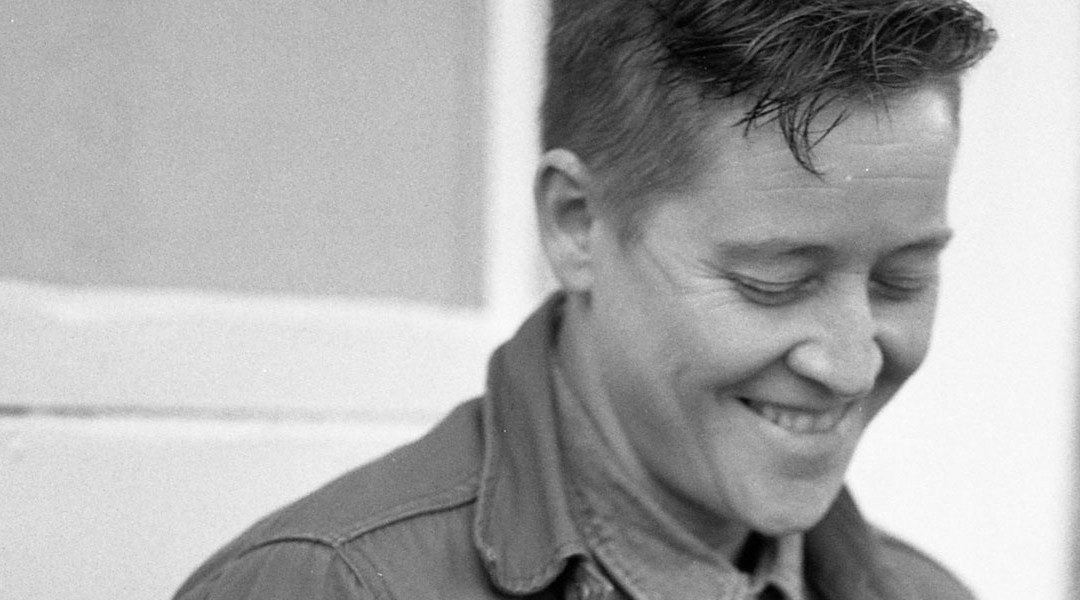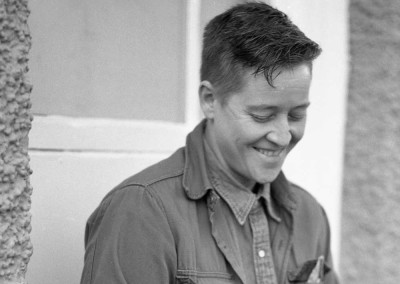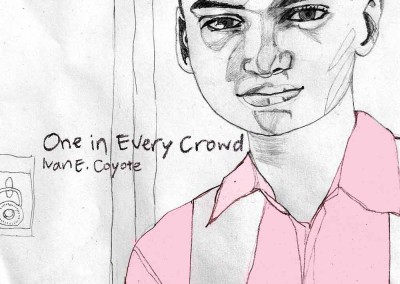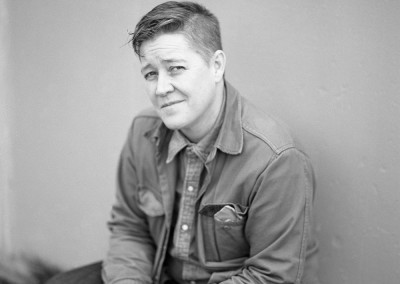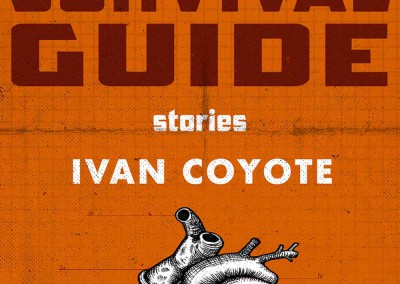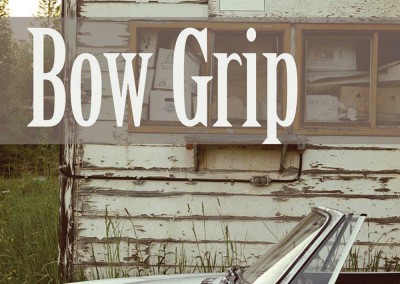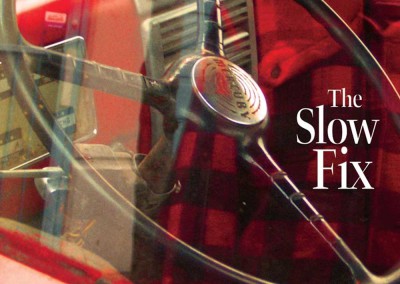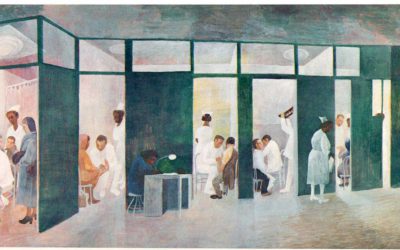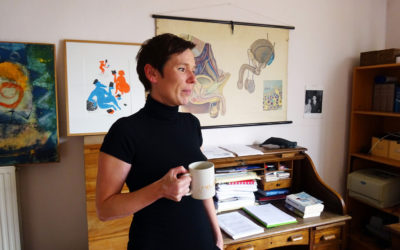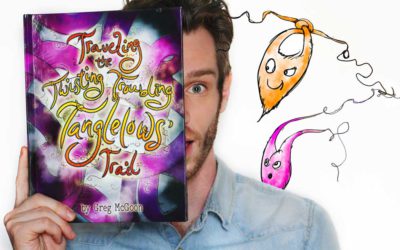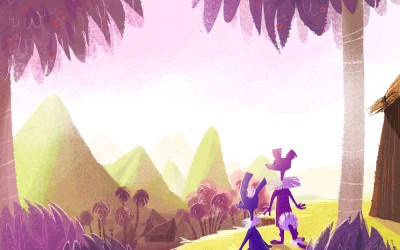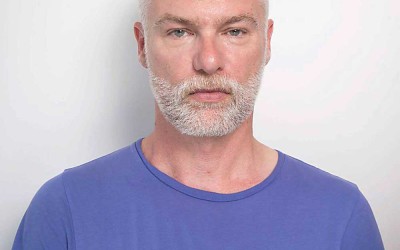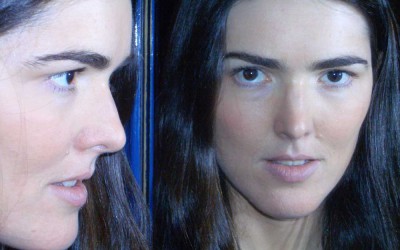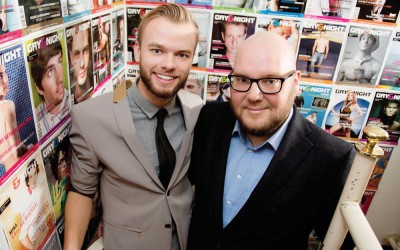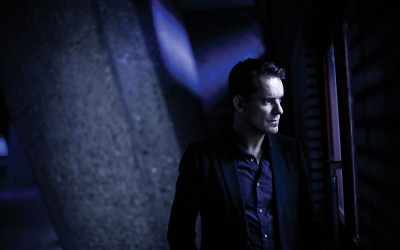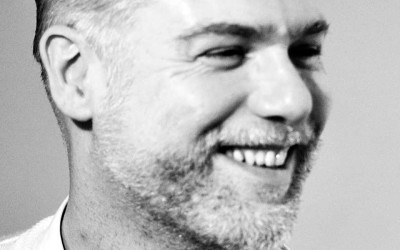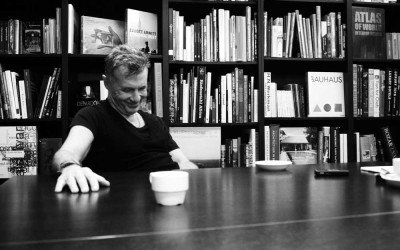Ivan E. Coyote
Text JF. Pierets Photos Courtesy of Ivan E. Coyote
On the day of this interview, New York passed a civil rights law that requires all single-users restrooms to be gender neutral. A decision of great impact on the daily reality of trans people and a life-changing event for Ivan E. Coyote. The award-winning author, renowned performer and lecturer considers themselves a gender failure; failing the gender binary which has equally failed them. A conversation about language, engaging with an audience, using the pronoun ‘they’, and toxic masculinity.
You stated, “I have failed the gender binary and it has failed me”. Can you elaborate?
The gender binary is one of the most effective power structures ever created and is used to perpetrate horrible things upon each other. The process of indoctrination begins as soon as the parents find out what the gender of their child is. They literally start talking differently, using a different tone of voice, and expecting different things from boys and girls. Meanwhile there is so much more to the reality of gender than just men and women and there always has been some version of people like me in every culture. If we acknowledge that fact and respect it, the whole thing will break down. We would be chipping away at the foundation of one of the biggest systems that we use to oppress people and especially women. Because even in so-called westernized societies, we still socialize young women differently, we still tell them what they can and cannot do. I don’t have all the answers, but what I do know is that more and more people are emboldened to come out of the gender closet and that I am a problem that is not going away. So if we, as a society, say that we have human rights for everyone, then we have to decide what that means and act upon it. It’s going to be good in the long run; it will make the world fairer, more truthful and more authentic.
What changes do we have to make in order to create such an ideal world?
One of the things we need to do in order to make a better world and in order to completely allow people to express who their real true self is, is unraveling the concept of unexamined toxic masculinity. It’s poisoning our society, and some of the biggest sufferers under that regime are men and boys. They are expected to perform this ideal masculine dance that is both not possible and not healthy, but still we continue to put that unrealistic nonsense in – for example – movies. A man has big muscles, fires guns and gets the girl in the end. Our boys are lost with those kind of role models. If we take that apart, and give women the right to their own bodies and education, a lot of things would change. I’m not interested in a gender revolution just so we can all wear what we want, that would be a nice byproduct, but I’m talking about liberation for women and men and everyone else. I’m not even sure if I can wrap my mind around how fundamental a change that would be. I know I can only affect my little corner of things, and part of that is fighting for my own human right to just be, and to go through the world. Step by step.
Is your personal use of the pronoun ‘they’ a part of those steps?
‘They’ is the pronoun I feel most comfortable with. Is it perfect for me? No. For years I struggled using the pronoun ‘she’ because that’s what I was raised up with. It’s hard to describe how uncomfortable that feels if you have never experienced it. In my book Gender Failure I try to describe it as somehow being carved away at. Often, the media can only understand trans people if they still “fit”: Trans people are all right as long as they look like Caitlyn Jenner and the only thing they want is to become a woman. I don’t want to be a man but don’t feel like a woman either, and that’s a difficult place to be in, yet that is my authentic self and there is nothing harder than spending an entire lifetime trying to cover up your authentic self. Using ‘they’ was not an easy decision to make and it still isn’t, because after 11 books, multiple awards, 3 films and 6 live shows, some people still reduce me to nothing but a pronoun. They’re falling back on these grammar rules, which are not even actually correct since the use of ‘they’ as a singular pronoun goes back to the 16th century, to Chaucer and Shakespeare, who both employed it. Language changes all the time to incorporate the people who are utilizing it. And that’s what it’s supposed to do. 15 years ago ‘Google’ was not even a verb or a word. Now we’re using it all the time and it’s even in the dictionary. It’s been incorporated because there was a need for it. So I’m sure that when somebody really digs their heels in, it’s not actually grammar that is the problem. They are resisting that change because it makes them uncomfortable, and it has nothing to do with language.
You are called a queer author, does that match with how you identify?
I’m situated in an interesting place on the gender spectrum but when I speak to people to whom my work resonates, it’s often about much more than just the queer themes. I also write about working class dynamics, for example, or about big families, or about the Yukon, where I come from. All those things are an important part of who I am. But I do mostly write things that are drawn from personal life, which obviously colors and flavors my non-fiction work. It wouldn’t be accurate to remove myself from those experiences but labels tend to limit both our readership and us. What makes me want to write is the ability to increase the narrative. To put more stories about queer life out there, about those of us who don’t really align with the gender binary. At the same time I resist being put in a box. I’m a writer. Period. There is a place where those labels cease to be effective but if I’m only writing stories for queer people, it’s not going to increase us being understood by those who are not exactly like us.
‘I know I can only affect my little corner of things, and part of that is fighting for my own human right to just be, and to go through the world. Step by step.’
Is that the reason why your prose is very accessible?
I don’t know, I think it’s just my style, my nature as a writer. I was an electrician while I was working on my earlier writing career so I don’t consider myself an intellectual. I’m a storyteller. My aim is to have things resonate with people so that they can find some personal truth, some way of relating it back to their own story. Dressing it up and making it complicated, especially when it doesn’t need to be, is not engaging. All that intellectualized stuff would get in the way of the level of engagement that I am looking for in a reader.
Is performing a way to be closer to your readers?
I started live storytelling before I got published so it was always a part of my art practice. Sometimes when I pick the right story, in the right order, in the right place and I approach it with the right heart, I have these moments of spiritual connection between the audience and myself. You can have this moment of looking inside each other’s hearts – seeing a glimmer of the true humanity of the other person. It doesn’t happen all the time but those moments are pretty magical. I realize that a lot of people are never moved by their every day job so I try to be grateful.
What’s your motivation for speaking in high schools?
One of my main motivators for speaking in public high schools is because my cousin Christopher, who I was really close to growing up, committed suicide when he was 21. I think he was gay, but we don’t know and we will never know, but he was a misfit and was horrifically bullied all the way through school. I think it’s very important to talk about how we treat each other and how that affects us. I know that’s hard to believe when you’re 15 years old, but all those things don’t disappear when you graduate. It’s a moment in our lives where we’re learning to believe or not believe in ourselves, it’s the moment when we decide if we matter. So I try to have a one on one about school bullying and respect on a Friday afternoon, in a gymnasium of 600 kids with the attention span of a music video. I can tell you; it’s not a job for the faint of heart.
You are a role model for many; did you have one when you were younger?
Not exactly, but there were a lot of woman in my family who challenged the rigid ‘70’s gender box and therefore inspired me as a young human. Yet if I have to name someone, it would be Annie Lennox doing her Elvis drag at the Grammy’s in 1984. It got me on another planet.
What would you say to a young kid who looks up to you?
I have struggled with depression my entire life and one of the things that gets me through the harder days is knowing that these things cycle in and cycle out. And things get better when you actively work to make them better; when you seek out a community or build a community, when you take action. I tell kids at school that art, writing and music got me through school and through life. You need to seek the things that make you feel good. You need to seek them out and you need to do them, and then you need to do them again. Not because you want to be the best but because the act of doing them is life affirming, constructive, therapeutic and joyous. Feeling good comes with a qualification and it involves some work on your part.
Ivan has a new book, Tomboy Survival Guide (based on the stage show) coming out with Arsenal in Fall 2016.
Related articles
Bernard Perlin
In One-Man Show, Michael Schreiber chronicles the storied life, illustrious friends and lovers, and astounding adventures of Bernard Perlin through no-holds-barred interviews with the artist, candid excerpts from Perlin’s unpublished…..
Annelies Verbeke
That’s a tough one because I don’t like to be put into a box. For me, Thirty Days is just a continuation of everything I’ve written before. I’m working on an oeuvre, which I started in 2003, and hopefully will be able to build up till the end of my days…..
Greg McGoon
Author and theatre performer Greg McGoon challenges the norm of children’s literature. By choosing a transgender princess as main character of the fairytale The Royal Heart and teaching self-acceptance in The Tanglelows, McGoon tries to…..
Square Zair Pair
Square Zair Pair is an LGBT themed children’s book about celebrating the diversity of couples in a community. The story takes place in the magical land of Hanamandoo, a place where square and round Zairs live. Zairs do all things in pairs, one…..
Ghosting. A novel by Jonathan Kemp
When 64-year-old Grace Wellbeck thinks she sees the ghost of her first husband, she fears for her sanity and worries that she’s having another breakdown. Long-buried memories come back thick and fast: from the fairground thrills of 1950s Blackpool…..
Leaving Normal
Leaving Normal: Adventures in Gender is creative nonfiction that takes an unflinching but humorous look at living as a butch woman in a pink/blue, boy-girl, M/F world. A perfect read for anyone who has ever felt different, especially those who…..
Amanda Filipacchi
I was 20 when I read Nude Men and I instantly got hooked on the surreal imagination of this New York based writer. 21 years and 3 novels later there is The Unfortunate Importance of Beauty, and Filipacchi hasn’t lost an inch of her wit and dreamlike tale…..
Gay & Night
Gay&Night Magazine started off in 1997 as a one-time special during Amsterdam Gay Pride. It soon however became so popular that it evolved into a monthly glossy. Distributed for free at almost all gay meeting spots in Belgium and The…..
Bart Moeyaert
Bart Moeyaert is internationally famous for his work as a poet, a writer, a translator, a lecturer and a screen writer. He once mentioned on television (on ‘Reyers Late’) that society is often overwhelming, that one is alone with one’s thoughts about…..
Jonathan Kemp
Jonathan Kemp won two awards and was shortlisted twice for his debut London Triptych. Gay bookstore Het Verschil in Antwerp, asked to interview the British author for a live audience due to the Dutch translation of his novel, ‘Olie op doek’. A…..
Michael Cunningham
We meet Michael Cunningham in Brussels where he is invited as an Artist in Residence by literary organisation Het Beschrijf. Coffee, Belgian chocolates and a conversation with the Pulitzer Prize-winning author of The Hours……
